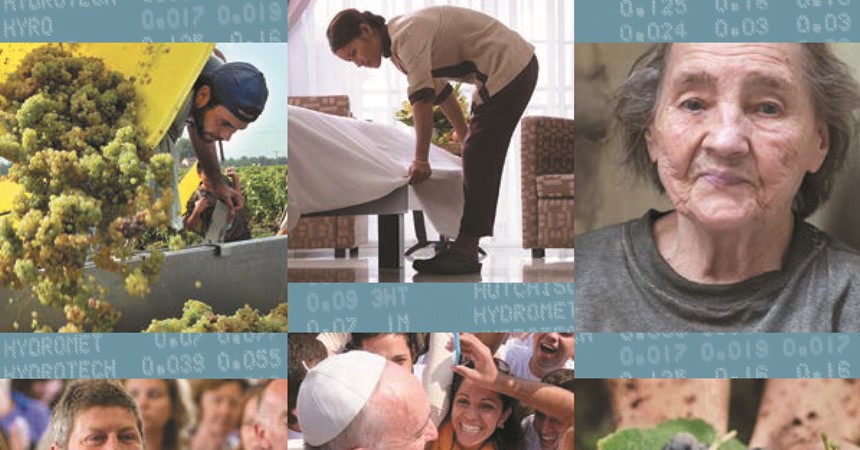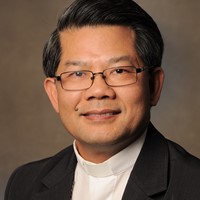In the Statement Pope Francis has called for an economic system that places men and women at the very centre – one that meets the needs of all people and is just and sustainable. He denounces economic structures that take a purely utilitarian view of human beings, treating them as mere elements of production, to be thrown away if they are not seen as useful or productive.
The Bishops’ Statement is built around the gospel for Social Justice Sunday, 24 September. Jesus tells the parable of the workers in the vineyard, where all are active contributors and are recognised for their human dignity.
Australia has experienced a quarter of a century of continuous economic growth, but the benefits of this good fortune have not been distributed equally. In our workplaces, conditions and security of employment have been eroded, while those who are unemployed subsist on incomes well below poverty levels. Australia is experiencing a housing crisis and our Indigenous brothers and sisters struggle with economic and social burdens that most Australians cannot imagine.
Chairman of the Australian Catholic Social Justice Council, Bishop Vincent Long Van Nguyen OFMConv, a former refugee, introduces the Statement.
This Statement is inspired by the teachings of Jesus and by the unswerving vision of Pope Francis: that the most vulnerable and excluded are the ones who need to take first place in our hearts and in our actions as individuals and as a society. As this Statement makes clear, our Pope draws on Christ’s message of love and ministry to the poor. He also draws on the wisdom of his predecessors, Popes Benedict and John Paul II, and on a tradition that stretches back to Pope Leo XIII in the 19th century.
Another source of inspiration was the major research project that culminated 25 years ago in the 1992 Statement by Australia’s Catholic Bishops, Common Wealth for the Common Good. In that Statement the Bishops warned of growing household poverty and employment insecurity. Most importantly, they stressed that the economy is something that exists not for its own sake but for the benefit of an entire society.
Over the two and a half decades since Common Wealth for the Common Good, Australia has been blessed by a period of uninterrupted growth. We are a far richer nation than we were 25 years ago. Yet there are still too many among us for whom this wealth remains a dream. Hundreds of thousands of people find themselves in poverty even though they have a job. Meanwhile, for those who depend on welfare payments, life has been made far harder.
Our Indigenous sisters and brothers continue to be over-represented in key areas of disadvantage, including life expectancy, illness and imprisonment.
For many Australians, the spectre of homelessness is becoming too real. In major cities and towns the prospect of buying or even renting a home is moving out of reach, even for those with decent jobs. Emerging groups such as older Australians, particularly women, are at risk of becoming homeless.
The ideas behind our Social Justice Statement for this year find strong support among international scholars and policy makers. The United Nations Sustainable Development Goals, and the vision of inclusive growth and shared prosperity, reinforce our call for a society in which justice and equity are foundational to the economy, not afterthoughts.
Throughout the Statement runs the theme of Jesus’ parable of the workers in the vineyard, recorded in the Gospel of Matthew. In this passage, all find a place in a fruitful world and are rewarded according to their intrinsic dignity.
I urge you to join me in praying for the grace to bring this vision about in our own world.
|
The ACSJC website (www.socialjustice.catholic.org.au/publications/social-justice-statements) will have resources available for download free of charge before Social Justice Sunday. They will include Social Justice Sunday Liturgy Notes, a PowerPoint presentation and resources for schools and social justice groups. |
Prayer Cards and ‘Ten Steps’ leaflets can be ordered from the ACSJC on (02) 8306 3499 or email admin@acsjc.org.au.
To enquire about the diocese’s Social Justice Council, please call Alyson, 4979 1117.




























































































